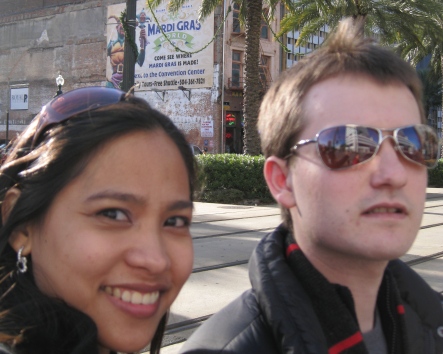from Chaucer’s Troilus and Criseyde Book I, Lines 225-59; translated/adapted from Middle English by Paul “Whitberg” Burgess
The Translation:
…It was thus for the brave and prideful knight.
As Priam’s son, a prince of Trojan race,
He’d never dreamed that any force’s might
Could pierce his heart and make it beat apace.
His heart was set ablaze by Beauty’s face,
And he, whose pride had soared so high above,
Was promptly put in chains by potent Love.
What better evidence can one adduce
To show those thinking, “Love can’t conquer me”
That Cupid wields the powers that reduce
To servitude a heart that once was free?
This rule has held and will eternally:
The chains of Love will bind whatever lives,
And none can break a law which Nature gives.
This truth’s been shown and will be shown again.
Some reading would reveal to all on Earth
That love enslaves the best there’s ever been.
It captures those with thoughts of endless worth,
Imprisons men with muscles great in girth,
And puts in thrall the peers of royal name.
The ways of Love have always been the same.
I truly think the ways of Love are fair,
And sages tend to hold the same belief.
So many men succumbing to despair
Have found that Love’s the perfect cure for grief,
And it provides the cruelest hearts relief.
It’s pushed the great to even greater fame
And made the shameless feel a sense of shame.
Since Love’s a god no person can resist
[and is the sea that’s Virtue’s flowing source],
Present to Love your willing heart and wrist,
Lest he decide to bind them both by force.
It’s better that a sapling take the course
Of wind that’d snap its tender trunk in two
… “Obey the god,” is my advice to you.
The Original Passage:
…So ferde it by this fierse and proude knyght
Though he worthy kynges sone were
And wende nothing hadde swich might
Ayeyns his wille that shuld his herte stere,
Yet with a look his herte wex a-fere,
That he now was moost in pride above
Wax sodeynly moost subgit unto love
Forthy ensample taketh of this man,
Ye wise, proude, and worthi folks alle
To scornen Love, which that so soone kan
The freedom of youre hertes to hym thralle
For evere it was, and evere it shall byfalle
That Love is he that alle thing may bynde
For may no man fordon the law of kynde.
That this be soth, hath preved and doth yit.
For this trowe I ye knowen alle or some,
Men redden nat that folk han gretter wit
Than they that han be most with love ynome
And strengest folk ben therwith overcome,
The worthiest and grettest of degree:
This was, and is, and yet men shall it see.
And trewelich it sit well to be so,
For alderwisest han therwith ben pleased;
And they that han ben aldermost in wo,
With love han ben comforted moost and esed;
And ofte it hath the cruel herte apesed,
And worthi folk maad worthier of name,
And causeth moost to dreden vice and shame.
Now sith it may nat goodly ben withstonde,
And is a thing so vertuous in kynde,
Refuseth nat to Love for to ben bonde,
Syn, as hymselven liste, he may yow bynde;
The yerde is bet that bowen wole and wynde
Than that that brest, and therefore I yow rede
To follow hym that so wel kan yow lede.
